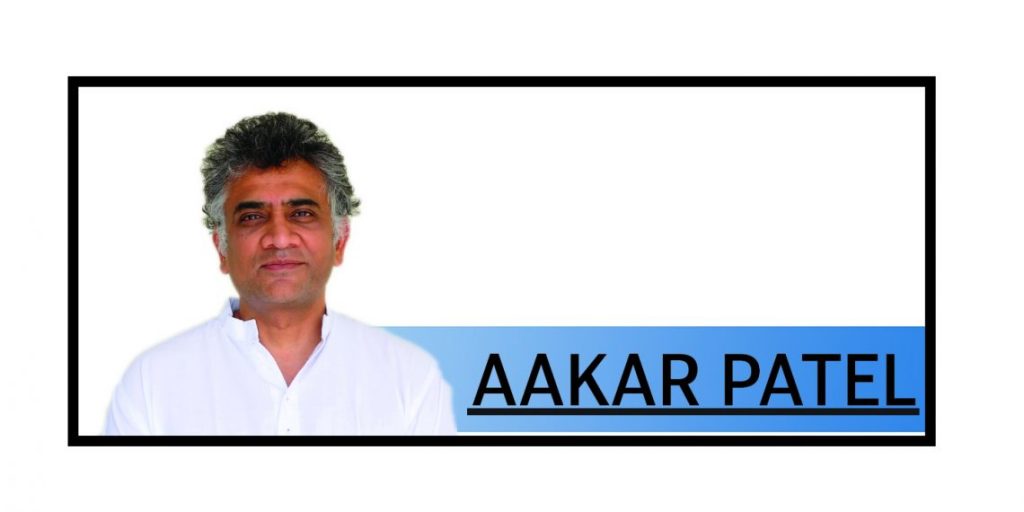The Supreme Court has put a stay on the sedition law, and the Union government has also said the prime minister wants colonial era legislation to be phased out. This is a good moment. The law said: “Whoever, by words, either spoken or written, or by signs, or by visible representation, or otherwise, brings or attempts to bring into hatred or contempt, or excites or attempts to excite disaffection towards the Government estab¬lished by law in India, shall be punished with im¬prisonment for life.”
The website Article-14.com has done great work in compiling the misuse of the law by the government and is responsible for the issue being in the public domain. Experts have cautioned that firstly, sedition cases can still be filed by the government and second that there are many other laws that are problematic and can be misused. Both of these are true. However, we must rejoice and take heart in the general direction. Once it dawns on the judiciary that some laws are out of place in a 21st century democracy, then problematic laws will fall. Nations reform themselves internally when they realise such truths.
India has many laws that need to be examined in light of individual liberties guaranteed to us in the Constitution. And sedition is not the only type of colonial law that we face. The Rowlatt Act that Gandhi opposed and led to the massacre of Jallianwala Bagh did away with fundamental principles of the rule of law. It could detain people without charge or trial and it did away with jury trials, in favour of in-camera trials by judges. This is called administrative detention, meaning the jailing of someone without a crime having been committed, merely on the suspicion that they will commit a crime in future.
But we have several such laws in India today. In 2015, over 3,200 people were held in ‘administrative detention’ in India. Gujarat has the Prevention of Anti-Social Activities Act of 1984. It allows for detention without charge or trial for a year. Uttar Pradesh has the National Security Act allowing detention without charge or trial for a year to “prevent a person from acting in any manner prejudicial to the defence of India, the relations of India with foreign powers, or the security of India” or “from acting in any manner prejudicial to the security of the State, or from acting in any manner prejudicial to the maintenance of public order, or from acting in any manner prejudicial to the maintenance of supplies and services essential to the community.”
This law has been used to jail Muslims accused of cattle smuggling and slaughter in Madhya Pradesh. Tamil Nadu has the Prevention of Dangerous Activities of Bootleggers, Drug-offenders, Forest offenders, Goondas, Immoral Traffic Offenders, Sand-offenders, Sexual Offenders, Slum-grabbers and Video Pirates Act, 1982. It allows the state to jail without trial or charge “any bootlegger or drug offender or forest offender or goonda or immoral traffic offender or sand offender or slum-grabber or video pirate… to prevent him from acting in any manner prejudicial to the maintenance of public order.”
Karnataka has the Prevention of Dangerous Activities of Acid Attackers, Bootleggers, Depredator of Environment, Digital Offenders, Drug Offenders, Gamblers, Goondas, Immoral Traffic Offenders, Land Grabbers, Money Launderers, Sexual Predators and Video or Audio pirates Act, 1985.
It allows for detention without charge or trial of up to 12 months of “any acid attacker or bootlegger or depredator of environment or digital offender or drug offender or gambler or goonda or immoral traffic offender or land-grabber or money launderer or sexual predator or video or audio pirate… to prevent him from acting in any manner prejudicial to the maintenance of public order.”
Assam has the Preventive Detention Act, 1980. It can jail individual for two years, without charge or trial.
Bihar has the Conservation of Foreign Exchange and Prevention of Smuggling Act, 1984. It allows for “detention without charge or trial for up to two years to prevent a person from i) smuggling goods, or (ii) abetting the smuggling of goods, or (iii) engaging in transporting or concealing or keeping smuggled goods, or (iv) dealing in, smuggled goods otherwise than by engaging in transporting or concealing or keeping smuggled goods, or (v) harbouring persons engaged in smuggling goods or in abetting the smuggling of goods.”
Jammu & Kashmir has three laws, one allowing detention without charge or trial for six months, another for a year and third for two years. West Bengal has the Prevention of Violent Activities Act of 1970. Journalists in Chhattisgarh are regularly jailed under the NSA and kept in prison for a year for their reporting.
As we can see from the dates, none of these are so-called colonial laws. These are laws we have gifted ourselves. Every state uses them liberally and there is no resistance from the judiciary. These days we have classified sections of the Indian people as the enemy through the use of the phrase anti-national.
We do not have Jallianwala Bagh-type gatherings today and if we did, against such laws, we would be called anti-national. But that does not change the fact that these laws are as out of time and place today as the Rowlatt Act was a century ago. Once that realisation dawns on us as a nation, and especially in the higher judiciary, we can expect that there will be reform of the sort that we have just seen with sedition. And that is something to be hopeful about for our future.
